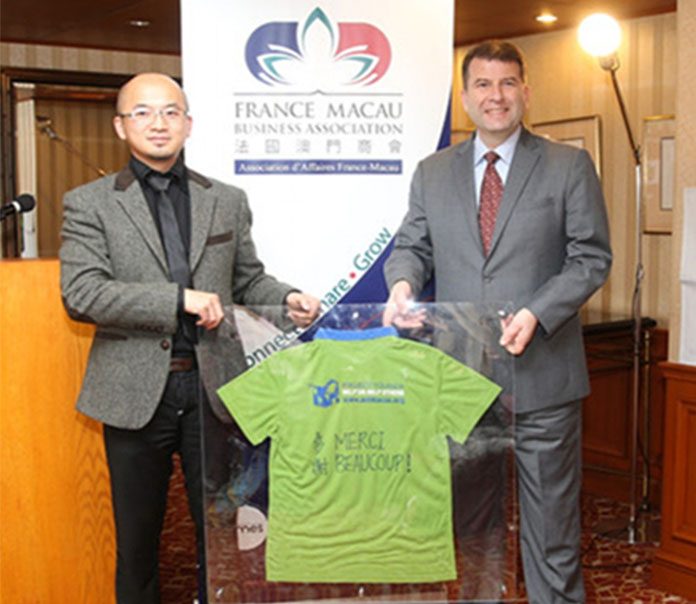
Dominic Choi, President of ASF – Macau
Architecture Sans Frontieres – Macau, is an apolitical non-profit organization, member of the ASF International, a worldwide network of NGO’s focusing on development issues. The organization aims to work in collaboration with local and regional communities, government representatives and other NGOs, to promote sustainable development initiatives and to value cultural diversity and heritage, as well as to promote self-sufficiency for disadvantaged groups in terms of shelter, basic sanitation, health and education.
DB talked to Mr. Dominic Choi, the Founding President of ASF-Macau, about his organization and its involvement in the upcoming FBMA Charity Gala Dinner which will take place on Friday 22nd January.
DB: Could you please tell us more about Architecture Sans Frontieres and what inspired you personally to be involved in the non-profit organisation concerning social and environmental issues?
Mr. Choi: “I was first approached by the Architecture Sans Frontieres (ASF) Portuguese organisation in 2011. Once I heard about the work they had been doing, it took myself and my group a year to start an ASF organisation here in Macau and soon after, in 2012, we had created the first ASF organisation in Asia. We found this an important step of branching out ASF because it was an organisation which was only present in Europe. Macau is a place that is socially amazing and has been very kind to us, so we felt that it is important to give back something to an area that has given us so much. Our profession admittedly concentrates on building luxurious homes and residential areas or promoting commercial entities, which unfortunately concentrates on a minority of the Macau populace. So, for a while now, our main aim has been to help the majority of the Macau public and concentrate most of our efforts on aiding education and promoting heritage”.
DB: What key projects has Architecture Sans Frontieres-Macau been working on within the past 3 years?
Mr. Choi: “To start with, we created a Humanitarian Project, which we had extreme difficulties with at the beginning, but we’re glad we stuck with it because around the same time we created the project, the disaster Typhoon Haiyan occurred in Yolanda Philippines, which had a death toll of 6,000 people. Our ASF team soon travelled to the Philippines to survey what we could do to help and we decided to assist in funding the construction of a high school. In October 2015, a project of building two classrooms was completed and since then we have transported over a thousand books to the Philippines, because further aid is still needed.
“Locally here in Macau though, our target of aid is to help the disadvantaged populace. As I said earlier, education and heritage is pivotal to successfully making a positive difference. Regarding education, the youth of urbanisation areas are our main focus as well as teaching them about Macau’s arguably forgotten heritage. So these are the two main aspects in relation to our development plan for Macau”.
DB: The FMBA Charity Gala Dinner is a well attended event. What do you have to say to its participants and organisers?
Mr. Choi: “Well we’re very pleased that the FMBA group is letting our Macau based ASF group participate in the event. We feel it is of utmost importance to share ideas and collaborate with others about our projects. It is also paramount that we don’t just create incentives to our projects, but instead create practicality about the projects because we believe in approaches that are hands-on”.
DB: What would be other sources of charity funds to sustain the local community development, in terms of environmental conservation, as well as cultural diversity and heritage?
Mr. Choi: “Since being in Macau, our group has liaised with many local individual aids and charity organisations, which as well as fund raising, help spread knowledge of caution for Macau and awareness, so participation of the local population is crucial. As you know, Macau is a very congested area, but one that is also harmonised. Because of its size, Macau makes it easier for local authorities to communicate and coheres with the public, which is also important when tackling the current social difficulties”.





